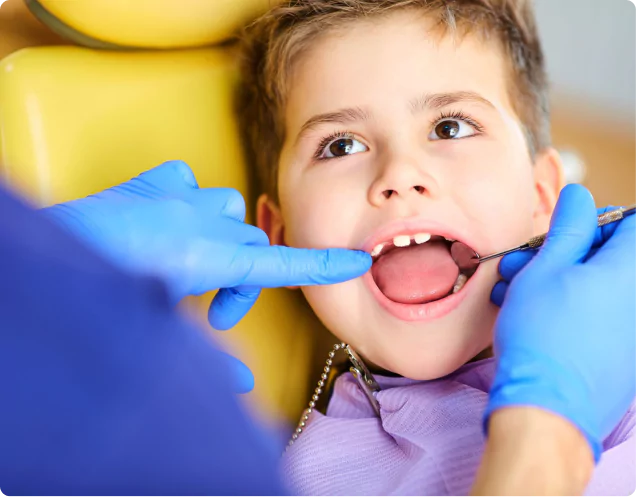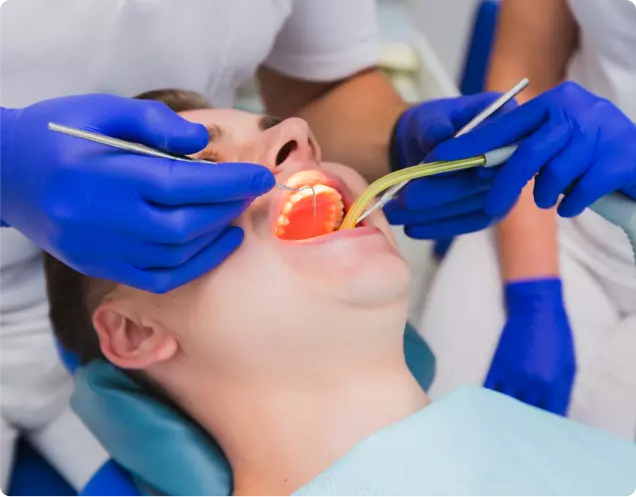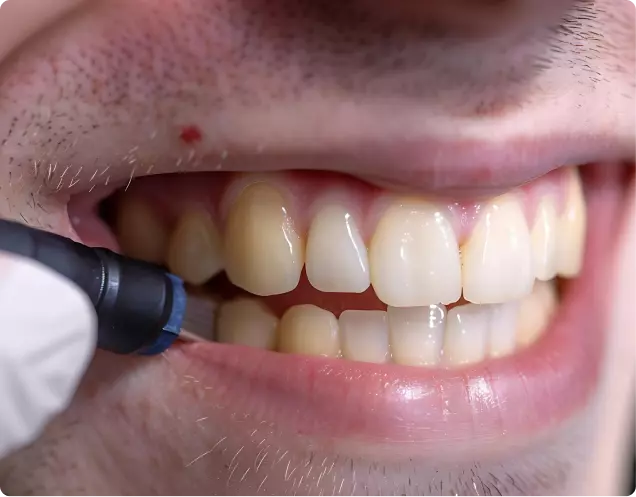Door No.4 Plot No. 59A 5th Main Road, Near Sri Vijaya Vinayagar Kovil, Chennai, Tamil Nadu
Periodontitis is more than gum inflammation; it is a dangerous infection that endangers your dental
health and well-being.
Catching it early might save your smile and avoid permanent harm.

Periodontitis is a more severe form of gum disease when the gums and bone supporting the teeth become inflamed and infected. It begins with gingivitis, a moderate gum irritation, but if not treated, it can develop into periodontitis. This disorder causes the gums to peel away from the teeth, creating pockets that can host bacteria. While the body battles these illnesses, the bone and tissue that support teeth may be lost.
Periodontitis impacts more than just the mouth; it can raise the risk of other health problems, such as heart disease and diabetes. Early identification and treatment are critical for preventing tooth loss and preserving overall health. If you experience signs such as bleeding gums or loose teeth, get expert help immediately.
Periodontal therapy improves both dental and general health. It prevents tooth loss by treating infection and inflammation, restoring the health of your gums and the bone that supports your teeth.
Periodontal treatment preserves natural teeth and lowers the risk of systemic illnesses associated with gum disease, such as heart disease. Controlling oral infections strengthens your immune system, decreasing your risk of other chronic health problems. Effective therapy promotes dental health and general well-being.


Early detection of periodontitis is vital for avoiding gum disease development. Gingivitis is the first sign of red, swollen gums that bleed while brushing or flossing. Persistent poor breath, despite proper dental care, might indicate the development of gum disease. Another early warning indication is gum recession, in which the gums begin to move away from the teeth, exposing more of the tooth’s surface.
If you detect changes in the texture of your gums or pockets between your teeth and gums, this might indicate periodontitis. Additionally, loose or moving teeth may signal more severe gum disease. Early identification and timely dental care can help control these symptoms and protect oral health.
Deep cleaning methods, scaling and root planing, and, in severe situations, surgical alternatives can be used to restore gum health and prevent additional damage.
Yes, proper dental hygiene, such as brushing and flossing regularly, as well as frequent visits to the dentist, can help avoid periodontitis.
While practicing good oral hygiene at home is vital, periodontitis needs expert dental care to treat the infection and inflammation successfully.